-
![Developing Vendor Management into a Mature Organization Product Image Developing vendor management - Developing Vendor Management into a Mature Organization]()
Developing Vendor Management into a Mature Organization
A vendor management organization (VMO) is a function that oversees and coordinates all aspects of vendor management, such as contract negotiation, financial management, relationship management, risk mitigation, performance monitoring, and collaboration. A VMO can provide significant benefits to an organization, such as cost savings, improved vendor performance and innovation, enhanced compliance and risk management, and better alignment of vendor strategy with business objectives.
July, 2024
-
![Navigating Change in Consensus-Oriented Sectors: A Humanitarian Organization's Journey to AMS Transformation Product Image Humanitarian - Navigating Change in Consensus-Oriented Sectors: A Humanitarian Organization's Journey to AMS Transformation]()
Navigating Change in Consensus-Oriented Sectors: A Humanitarian Organization’s Journey to AMS Transformation
In the realm of humanitarian work, consensus is not just a principle; it is a practice that underpins every strategic decision. This report presents a case study of a global humanitarian organization's journey through a transformative awards management system project, highlighting the pivotal role of change management in achieving consensus across a diverse array of stakeholders.
July, 2024
-
![Making The “Factory of the Future” a Reality with Strategic Tech Investments Product Image Factory of the Future - Making The “Factory of the Future” a Reality with Strategic Tech Investments]()
Making The “Factory of the Future” a Reality with Strategic Tech Investments
The traditional factory floor is on the cusp of a revolution. By strategically investing in emerging technologies, manufacturers can bridge the gap between the present and the “Factory of the Future,” a vision of intelligent automation, interconnected machines, and data-driven platforms. In this research byte, we explore the significance of implementing transformation initiatives to accelerate the creation of the “Factory of the Future,” examining service providers’ role in enabling IT/OT convergence, platform implementations, and Industry 4.0 technologies. We highlight the efforts of one such service provider, Hitachi Digital Services, based on its analyst and advisor event held in June 2024.
July, 2024
-
![Cloud Customer Relationship Management Suites 2024 RadarView™ RVBadges Cloud CRM 2024 - Cloud Customer Relationship Management Suites 2024 RadarView™]()
Cloud Customer Relationship Management Suites 2024 RadarView™
The Cloud Customer Relationship Management Suites 2024 RadarView™ assists organizations in identifying strategic partners for CRM adoption by providing a detailed analysis of key cloud CRM vendors across product maturity, enterprise adaptability, and innovation road map. The 46-page report highlights top supply-side trends in the cloud CRM suites space and Avasant’s viewpoint.
July, 2024
-
![Enhancing Productivity and Customer Experience for Enterprises through Generative AI Capabilities in CRM Moneyshot 6 1 - Enhancing Productivity and Customer Experience for Enterprises through Generative AI Capabilities in CRM]()
Enhancing Productivity and Customer Experience for Enterprises through Generative AI Capabilities in CRM
Enterprises are increasingly adopting cloud CRM platforms to enhance sales productivity, improve customer service efficiency, and gain deeper insights. CRM vendors are integrating generative AI capabilities across the CRM value chain to automate tasks, generate predictive insights, and facilitate skill development while forming strategic partnerships to augment customer engagement and operational efficiency. Industries such as manufacturing, retail, and high-tech show high adoption rates, driven by the need for better production planning, omnichannel experiences, and personalized marketing. The adoption of CRM suites is leading enterprises to significant revenue growth through enhanced upselling and cross-selling opportunities.
July, 2024
-
![Cloud Customer Relationship Management Customer Suites 2024 Market Insights™ Cloud CRM RV - Cloud Customer Relationship Management Customer Suites 2024 Market Insights™]()
Cloud Customer Relationship Management Customer Suites 2024 Market Insights™
The Cloud Customer Relationship Management Suites 2024 Market Insights™ assists organizations in identifying important demand-side trends that are expected to have a long-term impact on any CRM adoption project. It also provides insights into the key use cases addressed by enterprises across various industries.
July, 2024
-
![Middle East Cybersecurity 2024 Market Insights™ Market insights Product Image Middle East Cybersecurity - Middle East Cybersecurity 2024 Market Insights™]()
Middle East Cybersecurity 2024 Market Insights™
The Middle East Cybersecurity 2024 Market Insights™ assists organizations in identifying important demand-side trends that are expected to have a long-term impact on any cybersecurity-related digital projects in the Middle East. The report also highlights key challenges that the region’s enterprises face today.
July, 2024
-
![From Black Box to Easy Answers: App Orchid's AI-Powered Platform Unlocks Insights Product Image Tech Innovator orchid - From Black Box to Easy Answers: App Orchid's AI-Powered Platform Unlocks Insights]()
From Black Box to Easy Answers: App Orchid’s AI-Powered Platform Unlocks Insights
To say that AI is the scorching hot trend of 2024 is a huge understatement, and thus many companies have come to believe that AI projects can be the Holy Grail. But there are many problems that companies face in this regard. However, companies in a market dubbed enterprise decision intelligence (EDI) have emerged to fill this gap. One of the more interesting is App Orchid.
July, 2024
-
![The Era of AI-Enabled Innovation Product Image The Era of AI Enable - The Era of AI-Enabled Innovation]()
The Era of AI-Enabled Innovation
Artificial intelligence (AI) has become the central force of innovation across various industries and sectors. AI is revolutionizing diagnostics, treatment personalization, and patient care management. In manufacturing, it is enhancing production efficiency, predictive maintenance, and supply chain optimization. However, the journey to AI integration is not without its complications. One of the significant challenges is ensuring seamless integration of AI systems with existing infrastructures—while maintaining data security and privacy.
July, 2024



















